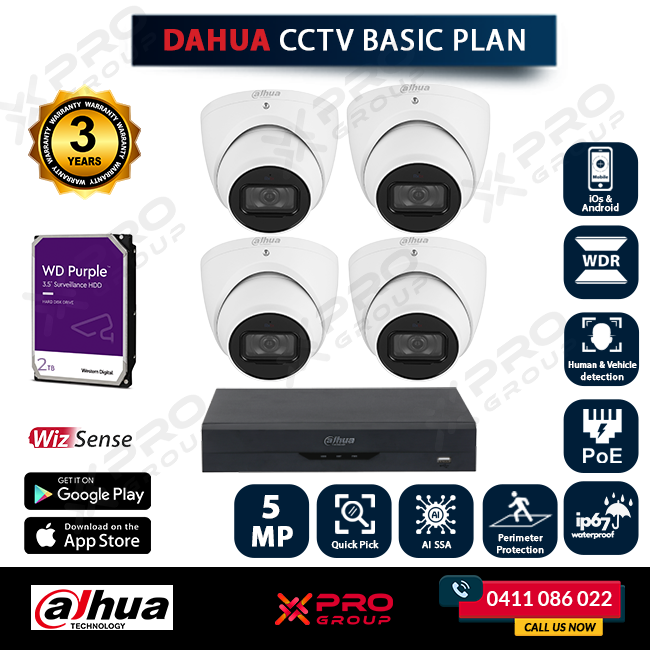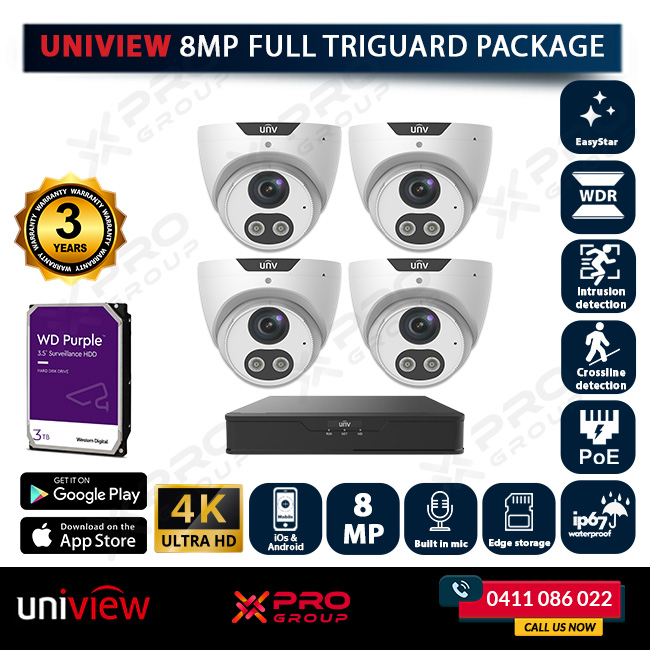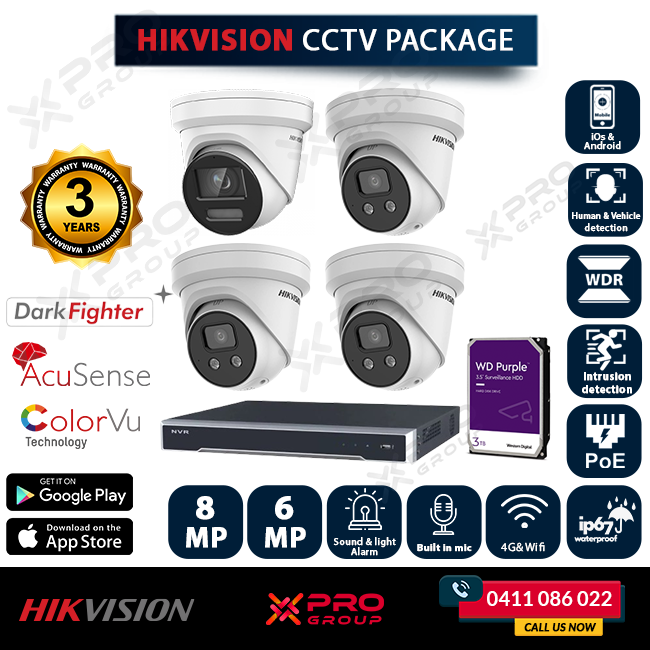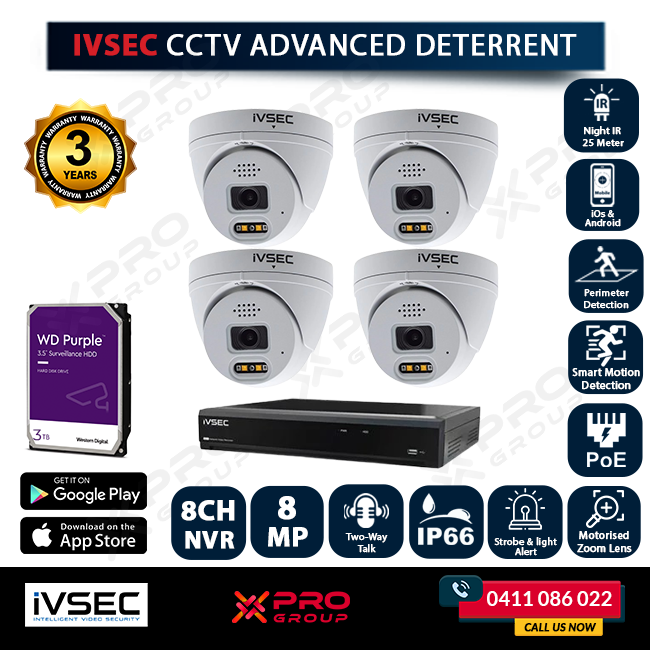Domestic CCTV
- Home
- Domestic CCTV
Xpro Group Security offers CCTV security solutions.
We are fully accredited, our technicians are police-checked, and we possess a current working with children check. Our team uses the latest technology and partners with reputable brands to provide reliable solutions.
Are you on the hunt for the perfect CCTV system but don't know where to start? Let me guide you through the process of choosing the right one for your needs!
Choosing the right CCTV system involves considering various factors to ensure it aligns with your requirements and provides effective surveillance. Here are some key considerations to help you choose the correct one:
- Purpose and Goals: Identify the primary purpose of installing CCTV. Whether it's for security, monitoring, or a combination of reasons, understanding your goals will guide your system selection.
- Camera Types: Choose the appropriate types of cameras for your needs, such as dome cameras for indoor surveillance, bullet cameras for outdoor areas, or PTZ (Pan-Tilt-Zoom) cameras for versatile coverage.
- Resolution: Higher-resolution cameras provide clearer images. Consider at least 1080p (Full HD) resolution for most applications. Higher resolutions, such as 4K, may be suitable for larger areas or when detailed images are crucial.
- Night Vision: If surveillance is needed at night, select cameras with infrared (IR) or low-light capabilities for clear imaging in low-light conditions.
- Field of View: Determine the required field of view for each camera. Wide-angle lenses cover larger areas, while narrower lenses may be needed for specific surveillance points.
- Indoor vs. Outdoor Cameras: Ensure that outdoor cameras are weatherproof and designed to withstand environmental conditions like rain, snow, and temperature variations.
- Power Source: Choose between wired and wireless cameras based on your preference and the feasibility of running cables. Wireless cameras offer flexibility but may require battery replacements or recharging.
- Storage: Decide between local storage (on-site DVR/NVR) and cloud storage. Local storage is often more cost-effective, while cloud storage provides remote access to footage and backup options.
- Number of Channels: Determine the number of cameras you need and choose a DVR (Digital Video Recorder) or NVR (Network Video Recorder) with sufficient channels to support your camera setup.
- Remote Access: Consider CCTV systems that offer remote access via mobile apps or web browsers. This feature allows you to monitor your property in real time from anywhere.
- Motion Detection and Alerts: Opt for systems with motion detection capabilities that can trigger alerts or notifications when unusual activity is detected. This can help you stay informed and respond promptly.
- Integration with Other Systems: Check if the CCTV system can integrate with other security systems or smart home devices you may have, enhancing overall security and automation.
- Budget: When it comes to planning your CCTV system, creating a budget that covers the cost of cameras, recording equipment, and any additional features is crucial. Our team of experts is ready to assist you in making informed decisions. Don't hesitate to contact us now.
Please click on the image below to view all the package details for each brand.

Dahua Packages
Click the Images to see more packages

Uniview Packages
Click the Images to see more packages

Hikvision Packages
Click the Images to see more packages

Ivsec Packages
Click the Images to see more packages
Brands we supply
Contact Us Today For A Quote
Copyright © 2024 Xpro Group Pty Ltd TA/S Xpro Security